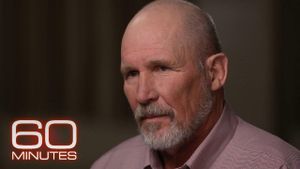Kerala's political scene has recently been buzzing with excitement following the bypoll results, which many pundits are calling significant indicators of the ruling coalition's standing, particularly for the Left Democratic Front (LDF). On Sunday, Chief Minister Pinarayi Vijayan proudly announced the LDF's impressive performance, emphasizing their gains amid what he described as fierce opposition tactics from the United Democratic Front (UDF).
The bypolls held for the Chelakkara assembly constituency and Wayanad Lok Sabha seat have sparked debates across the state. With results first trickling in on Saturday, CM Vijayan highlighted the LDF's victory as a clear indication of public support for his administration. Despite nonstop campaigning from the UDF, which sought to frame the election as a referendum on the government's integrity and performance, the LDF emerged strong, particularly impressing observers with its win in Chelakkara.
During his address at a party function, Vijayan pointedly questioned the UDF's claims of mounting anti-incumbency sentiments. He said, "What had happened when the results were announced?" This was not simply rhetoric; the chief minister pointed to the diminishing vote share for the UDF candidate compared to previous elections, signaling a solidifying base for the LDF and dissatisfaction with the UDF’s messaging.
Vijayan also levied accusations against the UDF for allied support from communal groups, indicating alliances with entities like the Social Democratic Party of India (SDPI) and Jamaat-e-Islami. He argued these shadows over the UDF's victory attempts indicated shifting political winds and pointed out how alliances based on communal agendas do not resonate well with the electorate.
The CPI, which is not only part of the ruling coalition but also the second-largest party within the LDF, reinforced this sentiment following the bypolls. CPI state secretary Binoy Viswam publicly stated, “The bypoll results proved the people of the state have rejected the propaganda unleashed by the Congress and the BJP about the alleged anti-incumbency wave.” His assertion packed quite the punch within Kerala’s political circles.
Viswam highlighted the LDF's performance as indicative of broadening support, especially noting the gains made not just on paper, but at the grassroots level, pointing to enhanced community rapport across the segments. He defended the party's strategy against UDF’s criticisms, arguing it reflected the voter’s will to respond to misinformation and against perceived threats from communalism.
On the flip side, the UDF registered significant victories as well, particularly with the Congress party winning the Wayanad seat, which has recently been characterized by high-profile campaigning led by key figures like Priyanka Gandhi Vadra. While the UDF succeeded, some leaders of the party could not bask long enough in glory as internal discussions arose about the large margins and the apparent disconnect with local electorate sentiments seen in other seats like Chelakkara and Palakkad.
Ironically, the scale of the UDF's campaign—which had been promoted as efforts to flip Chelakkara—seemed not to yield the expected result. The fact remained, with UDF candidates unable to maintain their prior vote share and the closeness of the margin raised eyebrows, particularly among analysts who had initially predicted broader successes for the UDF through their outreach efforts.
Simultaneously, reactions from CPI and LDF leaders suggest they perceive the results as affirmations of their political philosophy and policy focus, as they bout against issues like unemployment, inflation, and societal welfare. Meanwhile, UDF’s strategies and messages are under scrutiny as they face calls to reevaluate their tactics and publicly address recurring issues of factional discontent over leadership choices.
Overall, the dust is beginning to settle on the results of the bypolls, and both factions remain vigilant. Both the LDF and UDF came out with highlights of their victories but face starkly contrasting outlooks on why voters backed them. The LDF claims voter loyalty stems from satisfaction with governance, whereas the UDF tries to frame their victories as urgent responses to broader political discontent. The upcoming elections will likely see both parties reframe their narratives and strategies as they prepare for what promises to be heated future contests.
Analyzing the outcome from multiple angles indicates the ever-evolving nature of Kerala's political dynamics. Whether public support truly reflects satisfaction or if it's rooted instead on dissatisfaction with other options remains to be seen, but reflections from both sides of the aisle indicate plans for reflection and adjustment going forward.



